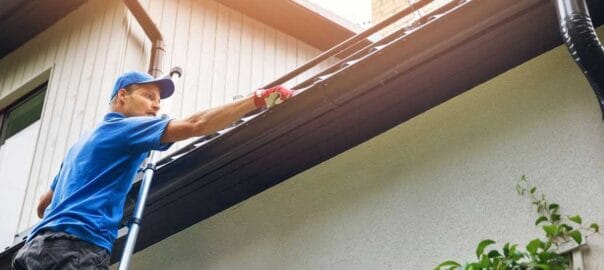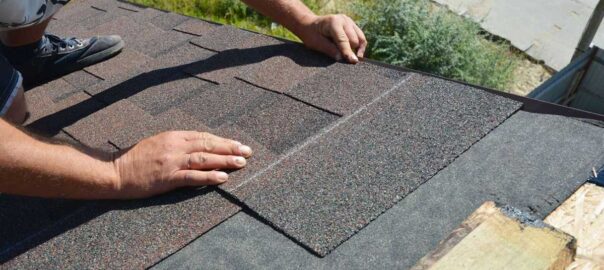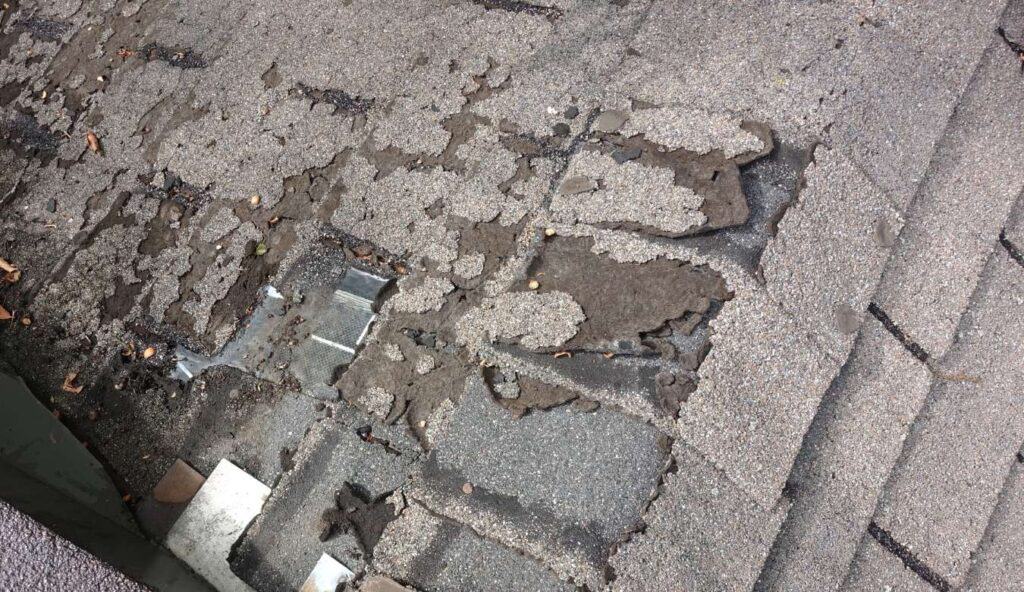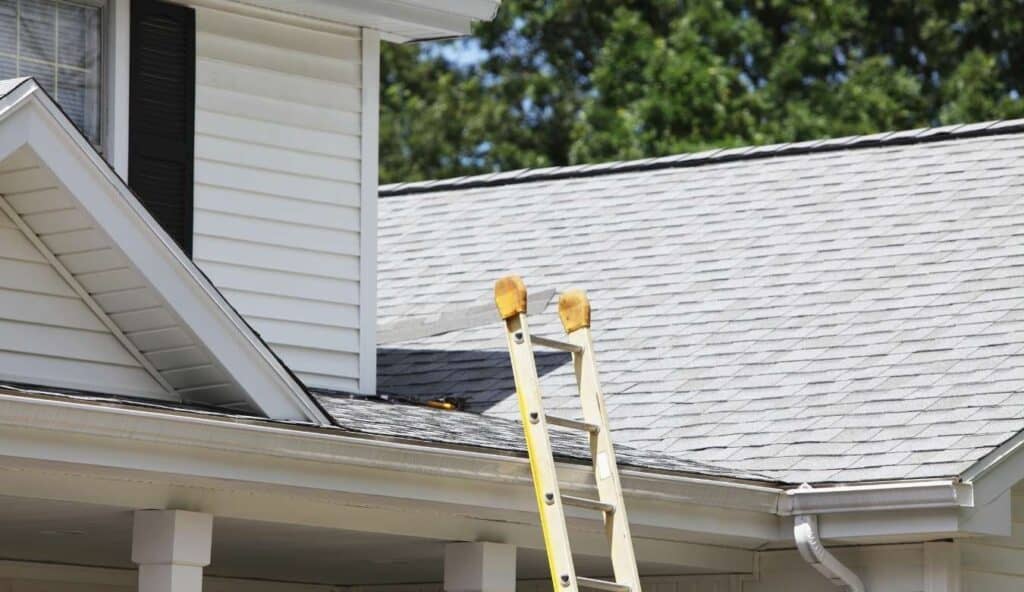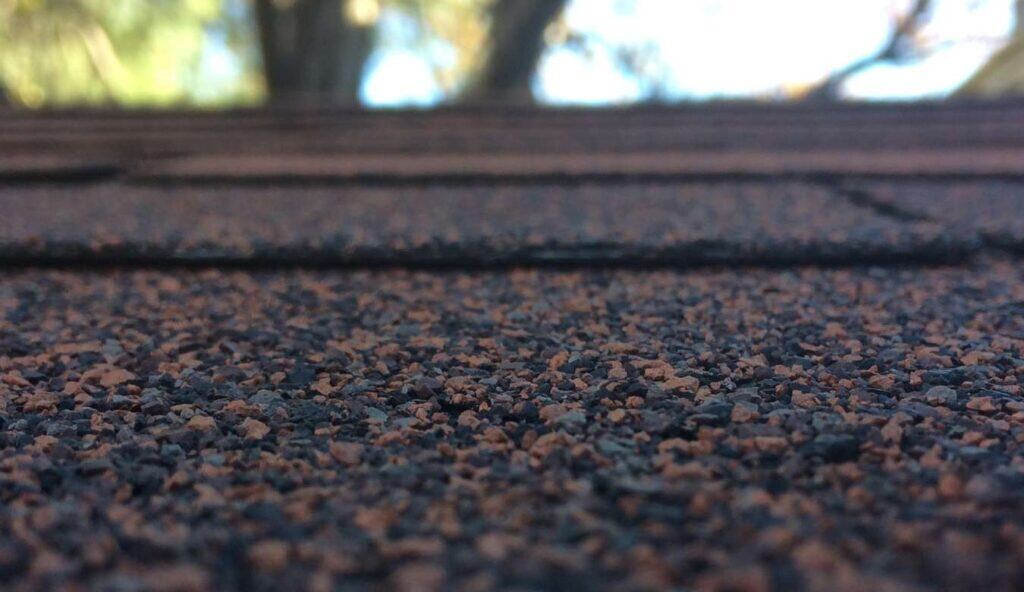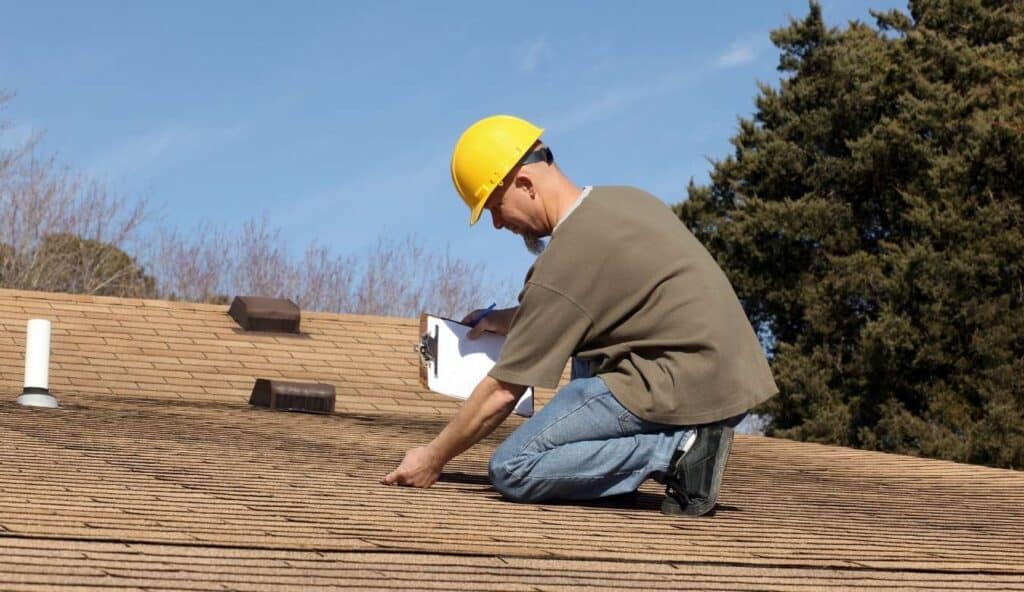Your Gutters Called—They’re Tired of Being Ignored (And So Is Your Foundation)
Hey Colorado Front Range folks! Yes, you, enjoying the 300 days of sunshine and unpredictable hailstorms that can lead to roof repair needs. While you’re out there hiking, sipping your craft IPA, or arguing over who has the best green chili (it’s me, I do), something sinister might be happening around your house—and it starts with your gutters.
Wait, don’t click away! Protect your home from potential storm damage. I promise this isn’t another boring lecture about home maintenance. This tale concerns gutters, gravity, and the terrifying consequences of letting things “just wait till spring.”
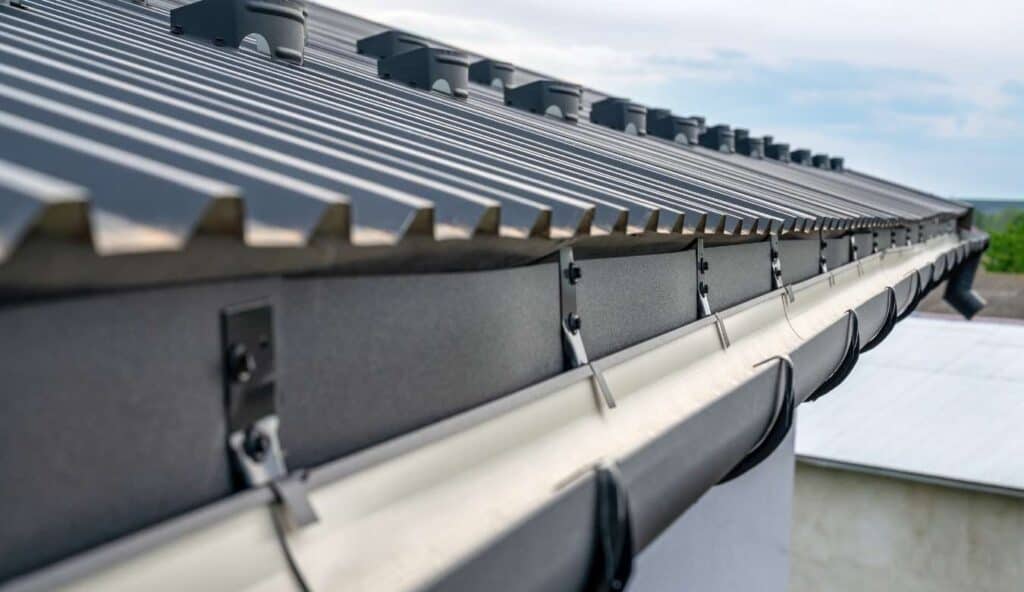
Meet Your Gutters: The Unsung Heroes of Homeownership
Let’s give a round of applause to the most underappreciated system in your house: the gutters. You know, those long aluminum channels that run along the roofline, bravely catching every raindrop and snowflake (and if you have some youngsters, let’s be honest, a few rogue baseballs, tennis balls, and maybe a Frisbee or two).
Their job? Inspect and maintain your roof and gutters to protect your home. Simple but mighty. They redirect water AWAY from your home’s foundation to prevent water damage.. But when they’re clogged, sagging, or poorly installed, that water doesn’t just vanish into the ethers; it can cause serious leak issues. Nope—it starts pooling near your foundation. And that, friends, is where the drama begins.
Foundation Issues: The Villain in Our Story
When water seeps into the soil around your house, it expands and contracts like your jeans after Thanksgiving dinner. This movement creates pressure, called hydrostatic pressure. Over time, it can crack your foundation, warp basement walls, and even shift your home, causing structural issues that require a roofing contractor. That’s not a haunted house creaking at night. That’s real structural drama.
And on the Colorado Front Range, with our unique mix of clay, soils, and wild weather, this problem is practically begging to happen if it hasn’t already been addressed in your attic. Several heavy snowmelt events or a week of hefty downpours can lead to roof damage, and suddenly your home’s foundation is holding on for dear life, especially after a heavy snowfall.
“But I Thought I Needed a Foundation Expert?” — Hold That Thought
Here’s the kicker: Many foundation issues start with bad roofing or gutter systems. So, before you call a team to jack up your house like it’s in a Marvel movie, let’s start with the basics to prevent further damage.
Ask yourself:
- Are my gutters overflowing during storms?
- Do I see water pooling near my home’s perimeter during or after a heavy rain?
- Are my downspouts just casually dumping water next to your foundation and not away from it?
If you answered “yes” to any of the above, it’s time to call in a local roofing pro (ahem, like Denny’s Roofing) who understands the interplay between your roof, gutters, and foundation.
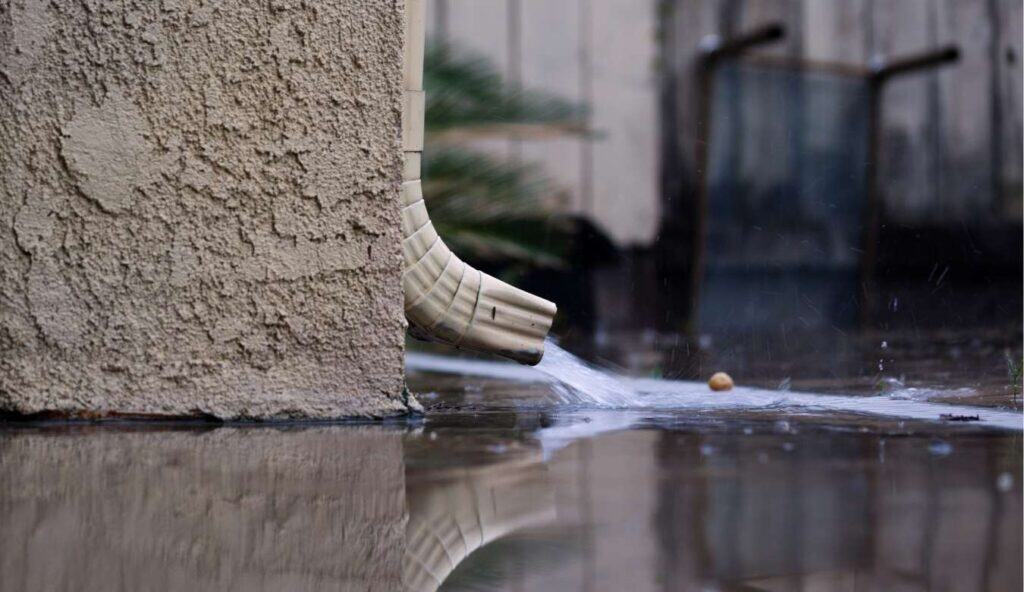
Denny’s Roofing: Not Just a Pretty Shingle
At Denny’s Roofing, we’ve seen it all—gutter gardens (yep, literal plants growing up there), downspouts pointing the wrong direction, clogged in-ground drains, even duct-taped fixes that make us question how long that will work. But more importantly, we fix these problems and help homeowners like you protect your home and investment from water damage.
We specialize in:
- Seamless gutter installation
- Gutter guards can help protect your home from ice dams and other storm damage in specific situations (because leaves are beautiful on trees, not in your drainage system)
- Proper downspout placement, which moves water away like it’s running late for a meeting, protects your home from leaks and extends its lifespan.
- Roof and gutter inspections to catch issues before they catch you, like clogged gutters or roof leaks.
While understanding the quirks of Colorado weather and the Front Range’s unique challenges. Hail, snow, and 70 degrees in February? Bring it on.
Pro Tip: Gutters Are Like Teeth—Maintenance Matters
You wouldn’t skip brushing your teeth for a year or more, right? (Please say no.) So, don’t skip on gutter cleaning and inspections. Twice a year—fall and spring—is usually enough. But if you have trees nearby or suspect trouble, we’re always happy to swing by and check things out.
And yes, climbing a ladder to scoop out decomposing leaves is as fun as dealing with roof repair after a storm. That’s why Denny’s Roofing offers gutter maintenance inspection plans that take the hassle off your plate (so you can get back to what matters, like bingeing another true crime documentary).
TL;DR (Too Long; Didn’t Roof)
Your gutters protect your foundation by channeling water away from your house.
Ignoring gutter issues can lead to roof damage and other costly repairs, as well as costly foundation damage, especially in the unpredictable Colorado climate.
Denny’s Roofing serves the Colorado Front Range with expert roofing and gutter solutions designed to keep your home safe, dry, and structurally sound.
Issues with your gutters can lead to significant water damage if not addressed promptly. Schedule a roof inspection today to ensure your home is safe from water damage. The roof and gutter inspection is today. Your house will thank you (and your wallet).
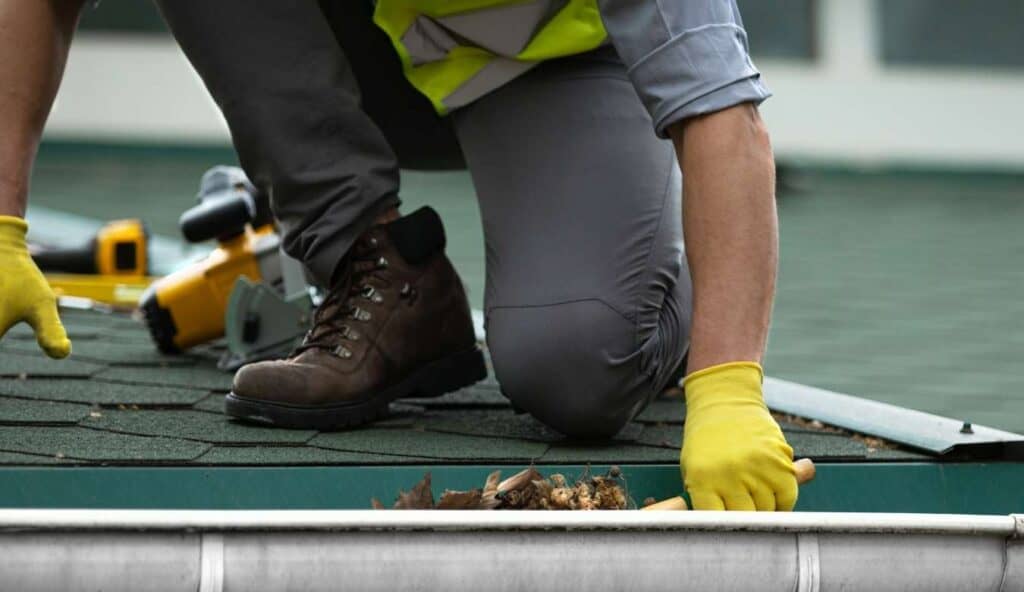
Other Related Questions We Received Related to Keeping Your Gutters Safe Through the Colorado Winter
Q: Why is the importance of gutter maintenance emphasized for Colorado homeowners?
A: Gutter maintenance is crucial, especially in Colorado, due to the state’s unique weather patterns. Properly maintained gutters help protect your home from water damage by directing water away from your home’s foundation and exterior, thus avoiding costly repairs.
Q: How can I protect my home from water damage caused by gutters?
A: To protect your home from water damage, regularly clean your gutters to prevent buildup, install gutter guards to reduce debris accumulation, and ensure proper gutter installation to direct water away from your home’s foundation.
Q: When is the best time to inspect and clean your gutters in Colorado?
A: Spring and fall are the best times to inspect and clean your gutters. This routine helps prepare for heavy snowfall and ice dams in winter and prevents blockages from debris accumulation.
Q: What signs indicate it’s time to replace your gutters?
A: Signs that need to replace your gutters include visible cracks, rust, sagging, water marks, or damage to your home’s foundation, and frequent leaks despite regular maintenance.
Q: How does poor ventilation affect my roofing system?
A: Poor ventilation can lead to moisture buildup, damaging your roofing system and reducing lifespan. It can also cause ice dams in winter, leading to leaks and water damage inside your home.
Q: What should I do if I suspect hail damage to my roof?
A: If you suspect hail damage, contact a professional roofing company for a roof inspection. They can assess the damage and recommend necessary repairs to prevent further damage to your home’s exterior.
Q: How can a roofer help protect my home from storm damage?
A: A roofer can protect your home from storm damage by conducting regular roof inspections, performing necessary repairs, and ensuring your roofing system is equipped to withstand Colorado’s severe weather conditions.
Q: Why is it essential to inspect your gutter system regularly?
A: Regular inspections of your gutter system are essential to identify potential issues early, such as leaks or blockages, which can lead to water damage. This proactive approach can save you time and money in the long run.
Q: How does a roofing company provide peace of mind for homeowners in Colorado Springs?
A: A roofing company provides peace of mind by offering professional services such as roof repair, roof replacement, and gutter installation, ensuring your home is well-protected against Colorado’s diverse weather conditions.
Q: What should homeowners in Colorado areas consider when choosing a new roof?
A: Colorado homeowners should consider the type of roof that can withstand hail, heavy snowfall, and other weather challenges typical to the region. Consulting with a Colorado roofing expert can help them select the best option for their needs.
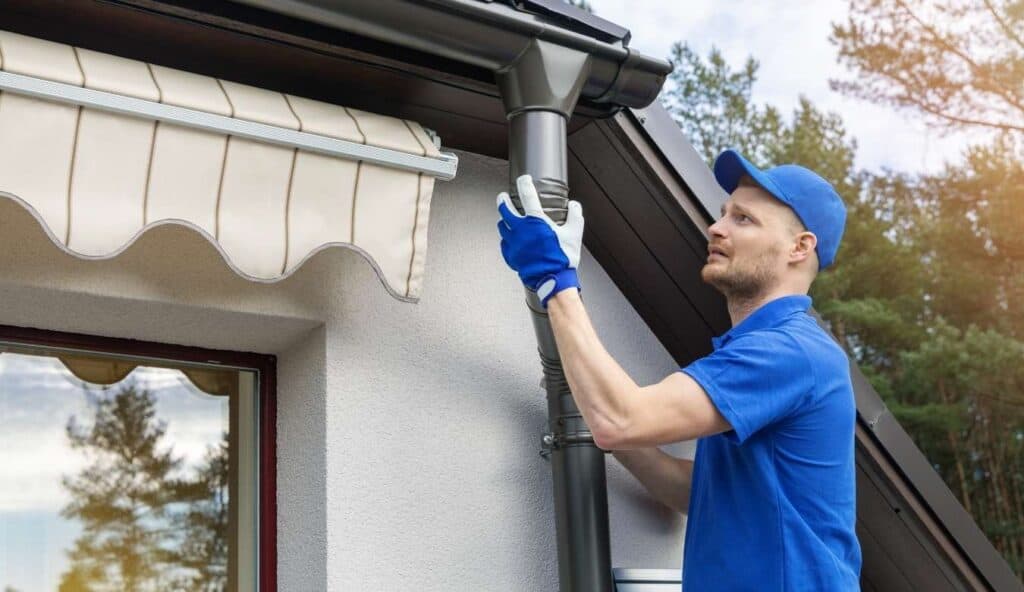
Final Thoughts: Don’t Let Your House Down (Literally)
Look, we get it. Gutters aren’t sexy. They’re not granite countertops or solar panels. But when they fail, they can bring down the house—literally and financially. So, don’t wait until you’re Googling “why is there a crack in my basement wall” at 2 a.m.
Call Denny’s Roofing, your friendly neighborhood roofer on the Colorado Front Range. We’ll ensure your gutters do their job so your foundation doesn’t have to pick up the slack.
📍 Serving Fort Collins, Greeley, Longmont, Boulder, Denver, Highlands Ranch, Aurora, Castle Rock, Parker, and everywhere in between, we provide roof repair services.
🔧 Services offered include gutter cleaning, roof inspection, and roof repair to prevent water damage: roofing issues, gutters, free inspections, repairs, and more.
📞 Call today for a FREE estimate or inspection! You’ll sleep easier knowing it’s protected from leaks and storm damage. So, will you.

